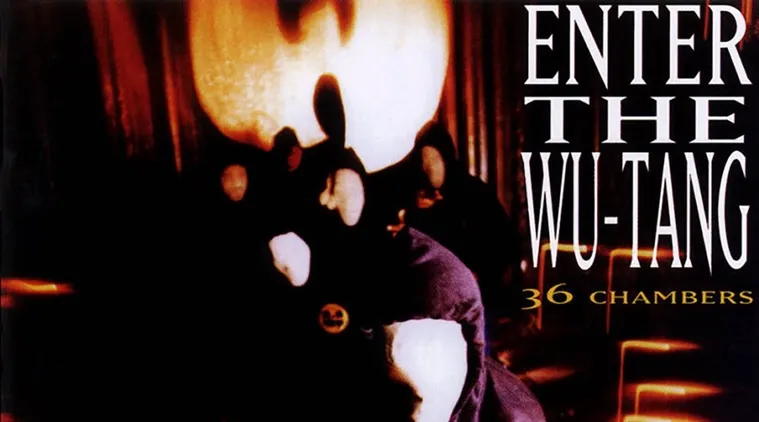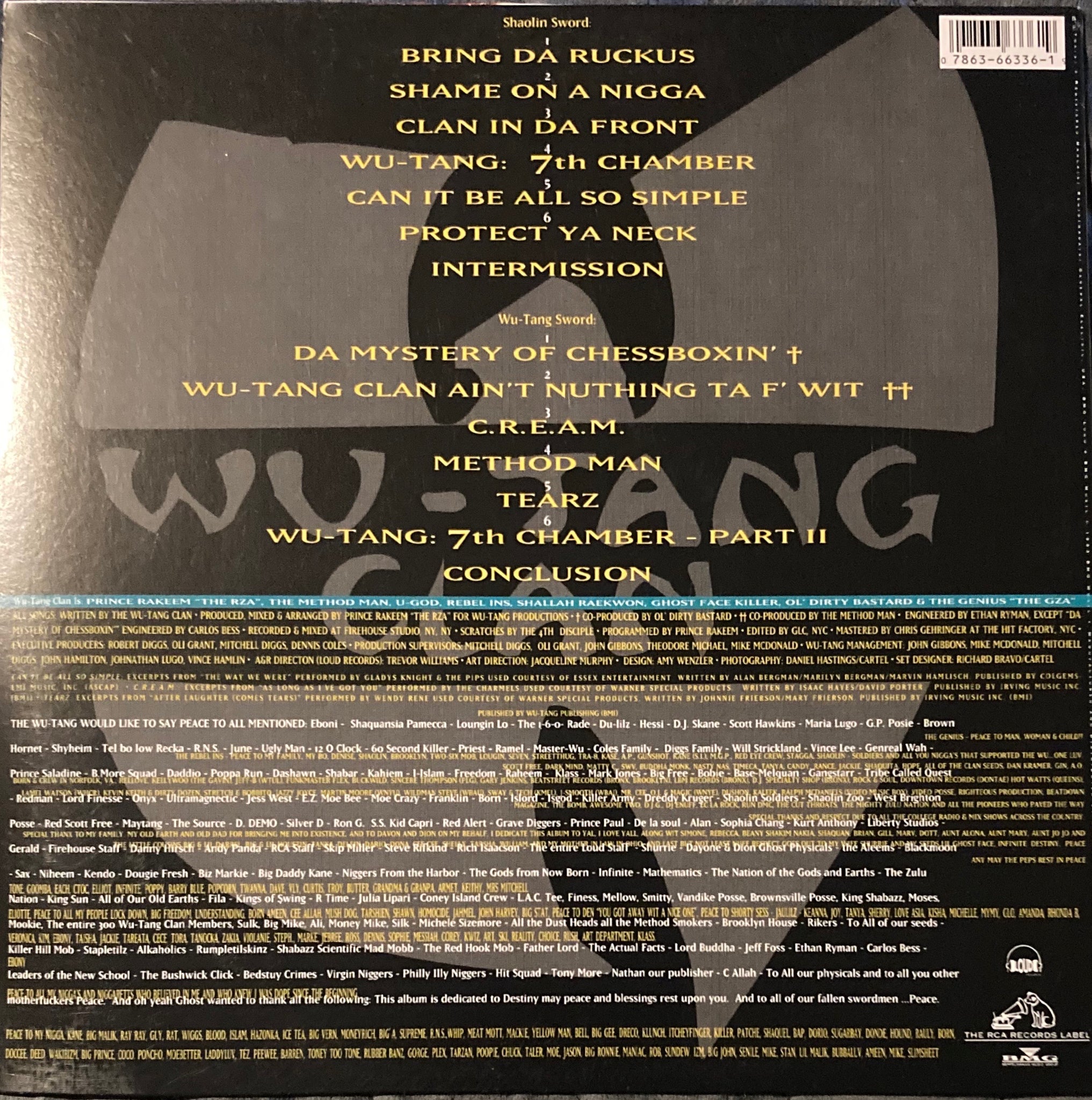

There was nothing like it in the hip-hop world at the time, and even after years of imitation, Enter the Wu-Tang still sounds fresh and original. Starting with a foundation of hard, gritty beats and dialogue samples from kung fu movies, RZA kept things minimalistic, but added just enough minor-key piano, strings, or muted horns to create a background ambience that works like the soundtrack to a surreal nightmare. Their off-kilter menace is really brought to life, however, by the eerie, lo-fi production, which helped bring the raw sound of the underground into mainstream hip-hop. Every track on Enter the Wu-Tang is packed with fresh, inventive rhymes, which are filled with martial arts metaphors, pop culture references (everything from Voltron to Lucky Charms cereal commercials to Barbra Streisand's "The Way We Were"), bizarre threats of violence, and a truly twisted sense of humor. Some were outsized, theatrical personalities, others were cerebral storytellers and lyrical technicians, but each had his own distinctive style, which made for an album of tremendous variety and consistency. Moreover, it introduced a colorful cast of hugely talented MCs, some of whom ranked among the best and most unique individual rappers of the decade.

It laid the groundwork for the rebirth of New York hip-hop in the hardcore age, paving the way for everybody from Biggie and Jay-Z to Nas and Mobb Deep. Its spare yet atmospheric production - courtesy of RZA - mapped out the sonic blueprint that countless other hardcore rappers would follow for years to come. Dre's The Chronic, the Wu-Tang Clan's debut, Enter the Wu-Tang (36 Chambers), was one of the most influential rap albums of the '90s. Meanwhile, 'C.R.E.A.M.' was so influential that its title became a rap slang word in and of itself.įrom here, virtually every member of the crew - particularly The GZA, Raekwon and ODB - would craft era-defining solo albums of their own, but it all started here and arguably, this was the most unified album the group produced both conceptually and as far as quality.Along with Dr. 'Shame On The N****' pushes ODB to the front as his marble-mouthed style seems both threatening and endearing. Ghostface opens the record on the clattering 'Bring Tha Ruckus,' a clear statement of intent his rhymes about a 'head rush' and being 'tougher than an elephant tusk' already establishing how bizarre and unique the group's rhymes were. The album, unified by its sparse sound, allows the nine Wu-Tang MCs room to stretch, and each of them has their own style, from Ghostface Killah's high-pitched yelp to Method Man's stoned ramble, all the way through to the utter insanity of ODB.

What replaced it was bizarre kung-fu film references. None of the rough edges are smoothed off, leaving pounding jams that lack the richness that G-funk boasted. It laid the groundwork for the rebirth of New York hip-hop, an underground, hardcore new sound that went on to influence Biggie, Jay-Z, Nas, and Mobb Deep, among others. This debut emerged as one of the most influential rap albums of the 90s. With a tiny budget to work with, RZA crafts sawn-off, raw beats that punish the listener. Wu Tang Clan - Enter The Wu-Tang (36 Chambers) Vinyl LP pressing. Nine of them, all MCs, headed by the RZA, each with their own styles, colliding into an astonishing, snarling beast of a record. To this day, no rap album sounds like Enter The Wu-Tang, and no rap group sounds like they do.

The East Coast as yet had little to no notable rappers to its name but here, on this low-budget posse record, the seeds of the East/West rivalry were sown as they wrenched the focus away from Compton. Dre, having paved the way with his group NWA and his solo classic The Chronic, owned the hip-hop world along with Suge Knight and his Death Row records. By 1993, West Coast G-funk and gangsta rap was dominating the hip-hop airwaves.ĭr.


 0 kommentar(er)
0 kommentar(er)
